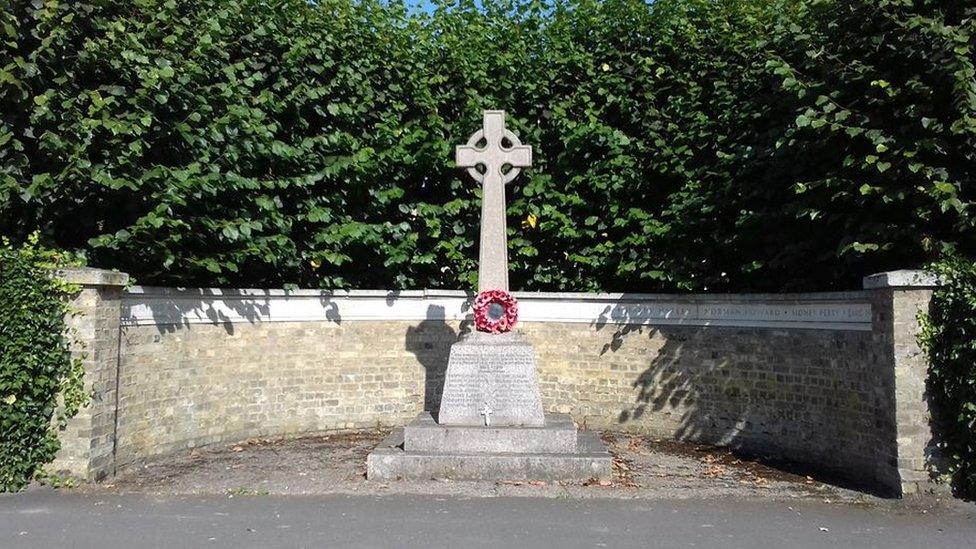East of England: One of first modern car washes among listed sites
- Published
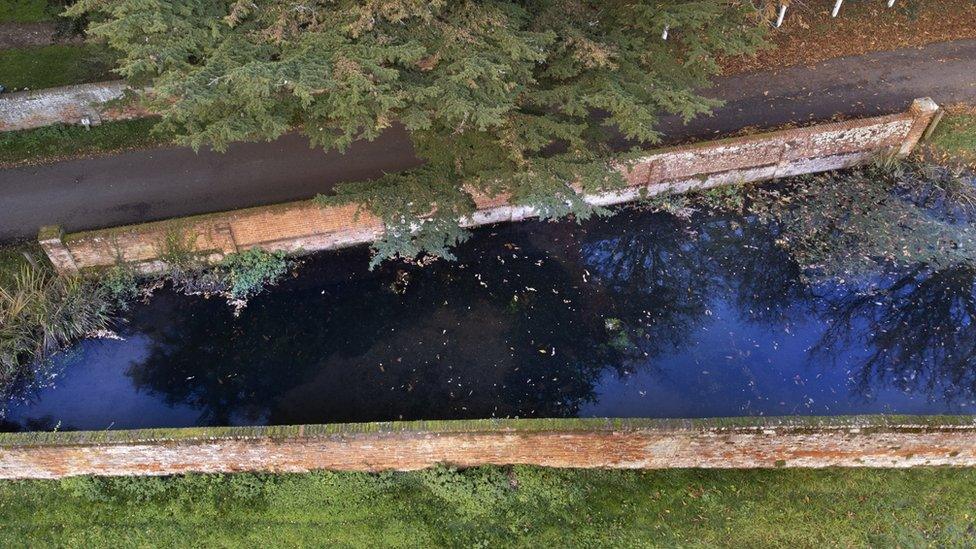
The Barkway Carriage Wash in Royston is believed to be the earliest modern car wash
One of the earliest known examples of a modern car wash is among a number of sites newly listed by Historic England.
The Grade II Barkway Carriage Wash in Hertfordshire is on a list of 44 sites added to the eastern region's National Heritage List.
Grade II* listed Northwold Manor in Norfolk, which has 500 years of different architectural styles, was also noted.
It has been described as an "exceptional time capsule" of design.
Barkway Carriage, external in Royston, known as a "carriage splash" dates back to 1600 and was a stopover for those travelling from London northwards.
It is one of only four such structures in England.
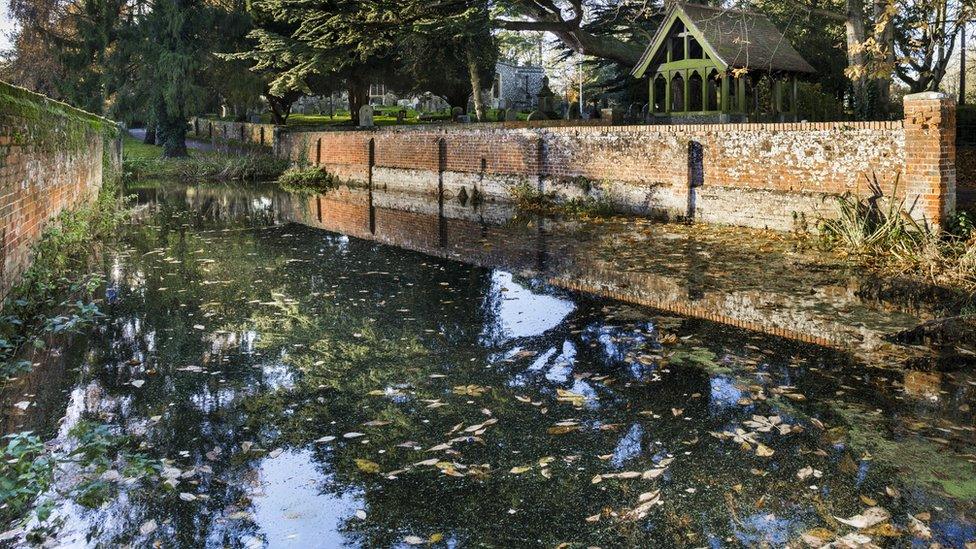
The carriage wash would be used to clean wheels without flooding the carriage
The wash was fed from a nearby underground water channel and was the right depth to submerge carriage wheels without flooding the carriage.
Residents have reported it being used to fill steam tractors well into the 20th Century after cars replaced horse-drawn carriages.
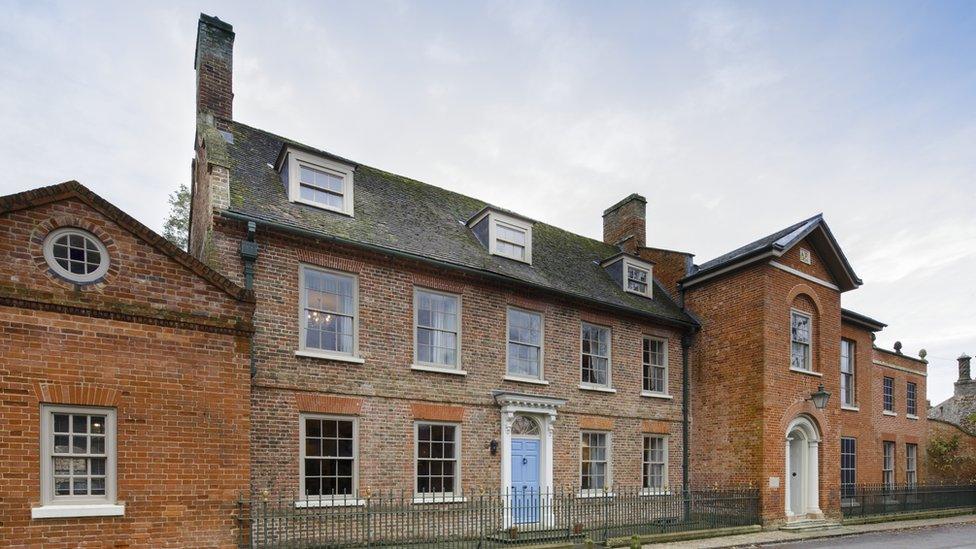
Northwold Manor was upgraded to Grade II* listed status in 2023
Earlier this year Northwold Manor in Northwold had its listed status upgraded from Grade II to Grade II*.
Historic England describes the building, which has been on the heritage list since 1951, as an "exceptional time capsule spanning 500 years of architectural design".
Once owned by the Carter family (relatives of British archaeologist and Egyptologist Howard Carter), the building's highlights include a Regency ballroom, a 16th Century range, impressive 17th century oak staircase, panelled 18th century parlours and a classical archway into the first-floor porch chamber with fluted ionic columns.
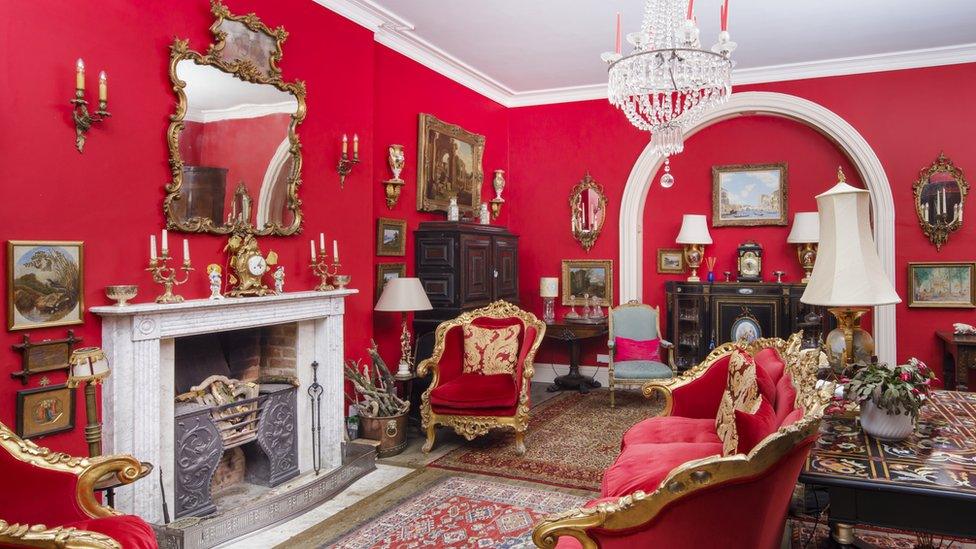
It has been described as an "exceptional time capsule spanning 500 years of architectural design".
The carved fanlight above the main entrance is of the highest significance and is a rare survival, Historic England have said.
Duncan Wilson, chief executive of Historic England, said: "A range of remarkable historic buildings and sites are added to the List each year and 2023 is no exception.
"We've examined and protected some amazing sites this year, which together give us a window into our rich and varied historic environment."
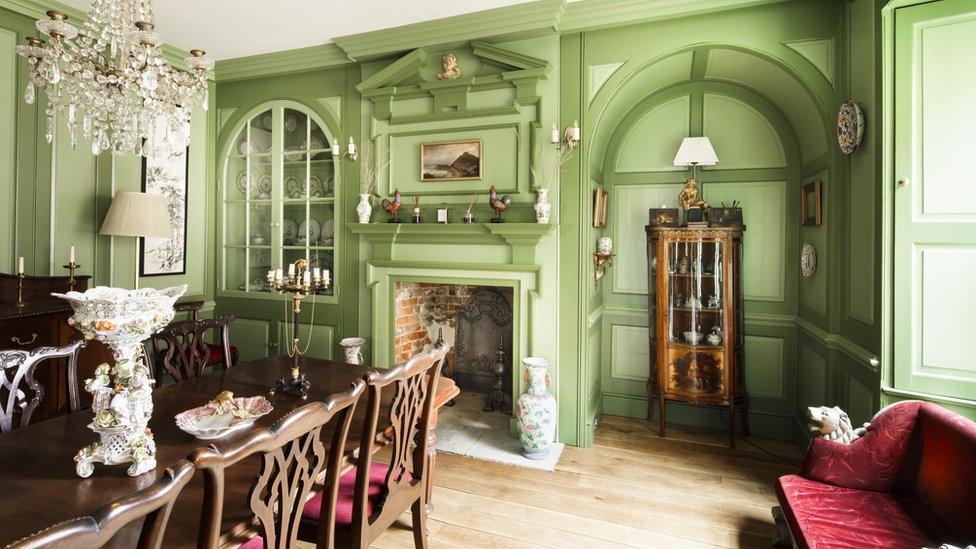
It was first listed in 1951
Heritage Minister Lord Parkinson of Whitley Bay said: "The striking range of places listed this year are a vivid demonstration of the richness and variety of our national heritage.
"The great work done by Historic England will ensure that they are protected for future generations to enjoy - and to learn about the fascinating people and stories connected with them."

Follow East of England news on Facebook, external, Instagram, external and X, external. Got a story? Email eastofenglandnews@bbc.co.uk, external or WhatsApp 0800 169 1830
Related topics
- Published18 November 2023
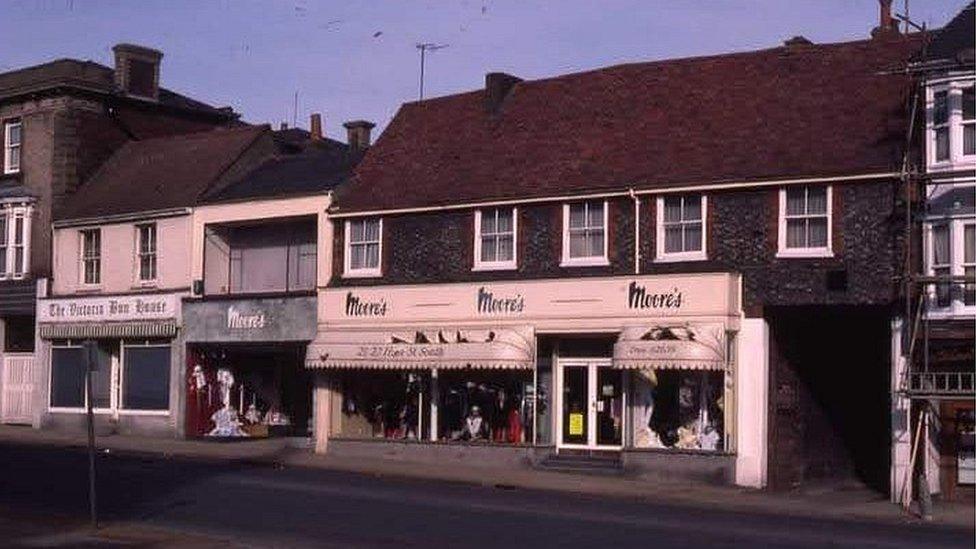
- Published9 November 2023
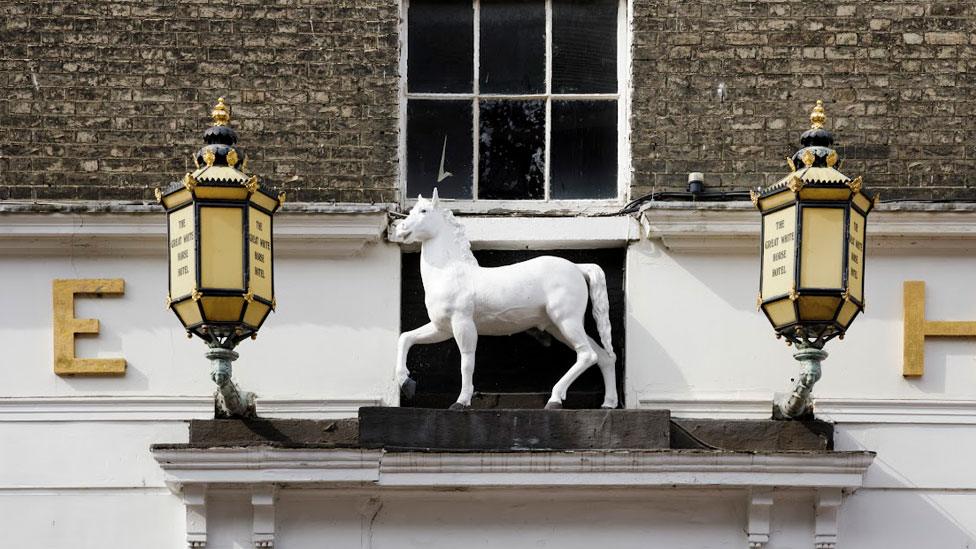
- Published10 November 2023
